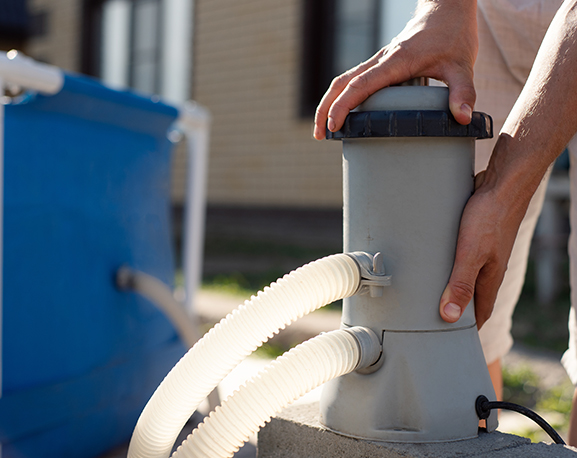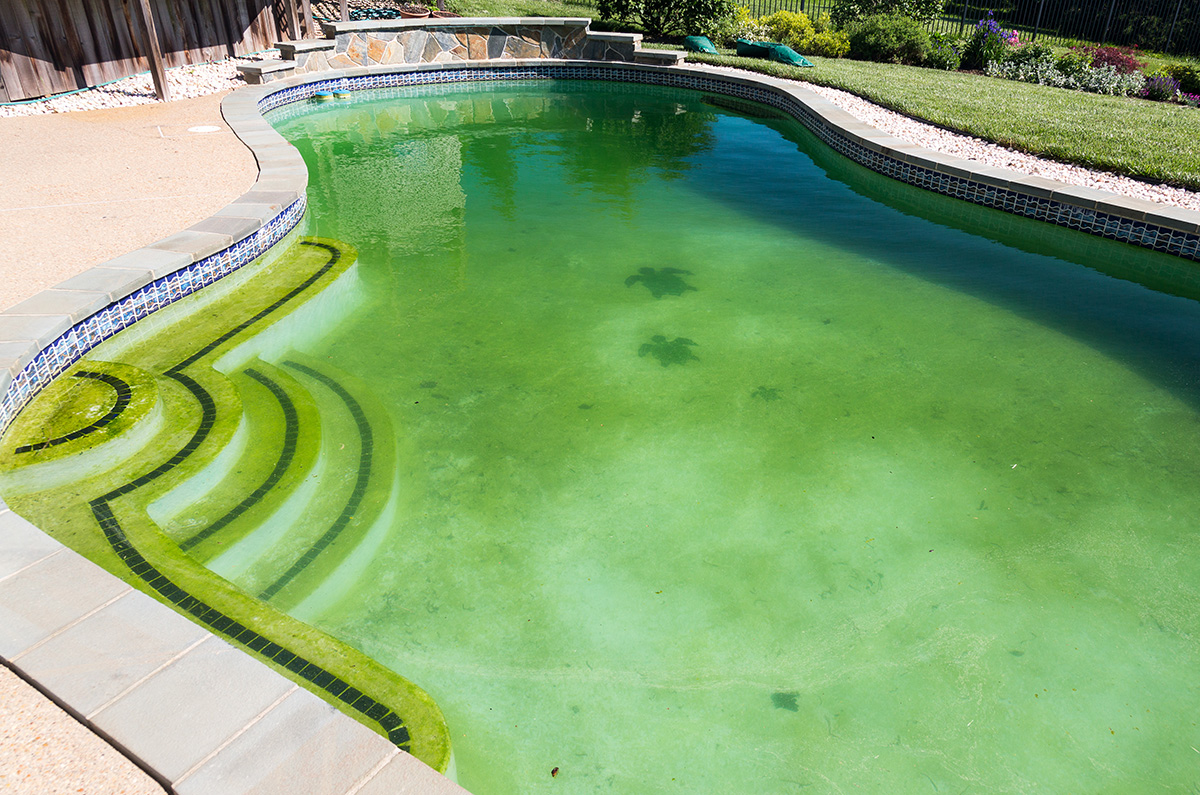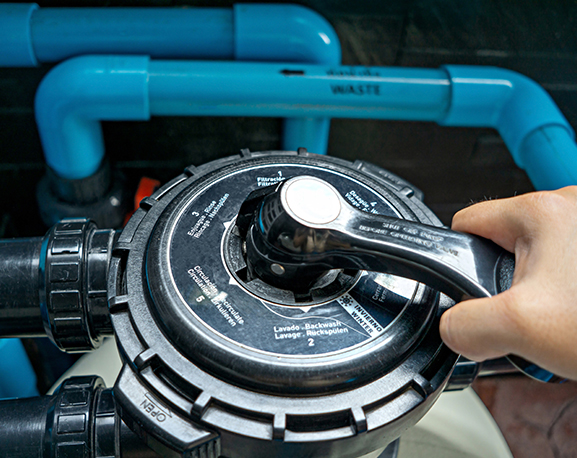Keeping a pool clean and clear takes more than just skimming the surface and adding chemicals. The filter plays a major role in keeping the water free from debris, dirt, and microscopic contaminants. Over time, though, the filter itself collects enough buildup that it can’t function efficiently. Cleaning the filter regularly is essential, but how often should it be done?
The answer depends on the type of filter, how often the pool is used, and the environmental conditions around it. While some pool owners attempt to handle filter cleaning themselves, professional servicing ensures that the job is done thoroughly without the risk of damaging the filter or affecting the pool’s circulation system.
Cartridge Filters
Cartridge filters are popular for their ease of use and relatively simple maintenance. These filters should typically be cleaned every two to six weeks, depending on pool usage and how much debris enters the water. A pool in a wooded area or one used heavily during the summer will require more frequent cleanings than a lightly used pool with minimal exposure to leaves and dust.
Cleaning a cartridge filter involves removing the filter element and rinsing it thoroughly with a hose. While this sounds simple, proper cleaning goes beyond just washing off the surface. A professional service can inspect the filter for wear and tear, soak it in a specialized cleaning solution to break down stubborn contaminants, and ensure that it’s reinstalled correctly. Regular servicing also helps extend the lifespan of the cartridge, reducing the need for frequent replacements.

Sand Filters
Sand filters require less frequent cleaning than cartridge filters but still need attention to maintain their effectiveness. A general rule is to backwash the filter when the pressure gauge rises 8 to 10 PSI above the normal level. This typically happens every four to six weeks, though pools with heavy use or significant debris may need backwashing more often.
Backwashing removes accumulated dirt by reversing the water flow through the filter, flushing out trapped particles. However, sand filters also require periodic deep cleaning to remove oils, lotions, and fine debris that backwashing can’t eliminate. This process involves using a specialized filter cleaner to break down buildup and restore the sand’s ability to trap contaminants. Having a professional handle this ensures that the cleaning is done effectively without over-backwashing, which can waste water and reduce filtration efficiency.
Additionally, the sand in the filter should be replaced every three to five years. A service technician can assess whether the sand is still in good condition or if it has become compacted, reducing its ability to filter properly.
Diatomaceous Earth (DE) Filters
DE filters offer the highest level of filtration, capturing even the finest particles. However, they require regular maintenance to stay effective. Like sand filters, DE filters should be backwashed when the pressure gauge indicates a rise of 8 to 10 PSI. This is usually necessary every four to six weeks, though pools with heavy debris loads may need it more often.
After backwashing, fresh DE powder must be added to the system. In addition to routine backwashing, a DE filter should be fully disassembled and cleaned at least once or twice a year. This involves removing the grids, thoroughly rinsing them, and ensuring that no DE buildup is restricting water flow. A professional cleaning service can handle this process properly, ensuring that the grids are inspected for damage and that the DE powder is replaced correctly.
Signs a Pool Filter Needs Cleaning
While following a regular cleaning schedule is important, pool conditions can change, requiring more frequent attention. Some signs that indicate a filter needs cleaning include:
- Cloudy or hazy water despite proper chemical balance
- Reduced water flow from return jets
- Higher than normal pressure readings on the filter gauge
- Increased need for chemicals to maintain water clarity
- Visible dirt or debris returning to the pool
If any of these issues arise, it’s best to have the filter checked and cleaned sooner rather than later. Delaying cleaning can lead to poor water quality and strain on the pump, potentially leading to costly repairs.

Professional Service vs. DIY Cleaning
Some pool owners choose to clean their filters themselves, especially for cartridge filters that can be rinsed off with a hose. However, professional cleaning offers several advantages. A trained technician can:
- Use specialized cleaning solutions that break down oils and debris more effectively than water alone
- Inspect filter components for signs of wear, cracks, or damage that might go unnoticed
- Ensure backwashing and deep cleaning are done properly without overuse of water
- Prevent accidental damage to filter grids, cartridges, or plumbing connections
Routine service also ensures that filter maintenance stays on schedule, avoiding neglected cleanings that can lead to water quality issues. While DIY cleaning may work for simple upkeep, professional service provides a thorough, long-term approach to keeping the pool’s filtration system running efficiently.
Keeping a Pool Filter in Top Condition
A clean filter is essential for clear, healthy pool water, but regular maintenance is what keeps it functioning efficiently. Sticking to a consistent cleaning schedule, monitoring pressure levels, and addressing buildup before it affects performance prevents unnecessary strain on the filtration system. While some pool owners handle basic upkeep, a professional service ensures a deeper clean, extends the filter’s lifespan, and prevents common mistakes that can reduce efficiency. That’s where Big League Pool Cleaners comes in. Our team specializes in expert filter maintenance, using professional-grade solutions to break down stubborn buildup, inspect for wear, and keep your system running at peak performance. If your filter is due for a cleaning or you’re unsure about its condition, let us handle it. Contact us today to schedule a service or consultation and keep your pool in top shape.

